Ditapis dengan
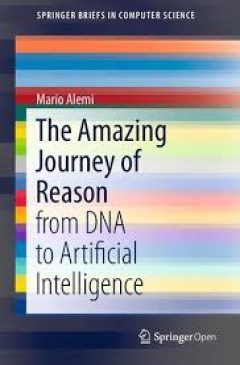
The amazing journey of reason :from DNA to artificial intelligence
This Open Access book explores questions such as why and how did the first biological cells appear? And then complex organisms, brains, societies and –now– connected human societies? Physicists have good models for describing the evolution of the universe since the Big Bang, but can we apply the same concepts to the evolution of aggregated matter –living matter included? The Amazing Journ…
- Edisi
- -
- ISBN/ISSN
- 9783030259624
- Deskripsi Fisik
- -
- Judul Seri
- -
- No. Panggil
- 155.7 ALE t
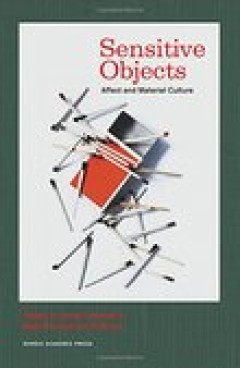
Sensitive objects :affect and material culture
"The study of affect has become a dynamic field spanning a range of disciplines from psychology over neuroscience to philosophy and cultural studies. Little attention however has been payed to material culture. This book presents an innovative set of ethnographies of the affective relations between people and things. It tackles the sensual experiences of materiality, through taste, sounds, smel…
- Edisi
- -
- ISBN/ISSN
- 9789188168610
- Deskripsi Fisik
- 285 p.
- Judul Seri
- -
- No. Panggil
- 152.4 SEN s
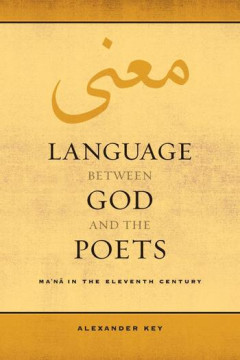
Language between God and the poets :ma'ná in the eleventh century
How does language work? How does language produce truth and beauty? Eleventh-century Arabic scholarship has detailed answers to these universal questions. Language Between God and the Poets reads the theory of four major scholars and asks how the conceptual vocabulary they shared enabled them to create theory in lexicography, theology, logic, and poetics. Their ideas engaged God and poetry at t…
- Edisi
- -
- ISBN/ISSN
- 9780520298019
- Deskripsi Fisik
- xvi, 280p. : ill.
- Judul Seri
- -
- No. Panggil
- 181.92 KEY l
Rethinking health care ethics
The goal of this open access book is to develop an approach to clinical health care ethics that is more accessible to, and usable by, health professionals than the now-dominant approaches that focus, for example, on the application of ethical principles. The book elaborates the view that health professionals have the emotional and intellectual resources to discuss and address ethical issues in …
- Edisi
- -
- ISBN/ISSN
- 9789811308307
- Deskripsi Fisik
- xv, 169p.
- Judul Seri
- -
- No. Panggil
- 171.7 SCH r
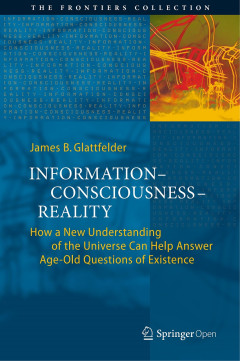
Information—Consciousness—Reality :how a new understanding of the univers…
This open access book chronicles the rise of a new scientific paradigm offering novel insights into the age-old enigmas of existence. Over 300 years ago, the human mind discovered the machine code of reality: mathematics. By utilizing abstract thought systems, humans began to decode the workings of the cosmos. From this understanding, the current scientific paradigm emerged, ultimately discover…
- Edisi
- -
- ISBN/ISSN
- 9783030036331
- Deskripsi Fisik
- XXIV, 662 p.
- Judul Seri
- -
- No. Panggil
- 113 GLA i

Persons and their minds:towards an integrative theory of mediated mind
Today’s approaches to the study of the human mind are divided into seemingly opposed camps. On one side we find the neurosciences, with their more or less reductionist research programs, and on the other side we find the cultural and discursive approaches, with their frequent neglect of the material sides of human life. Persons and their Minds seeks to develop an integrative theory of the min…
- Edisi
- -
- ISBN/ISSN
- 9781315623658
- Deskripsi Fisik
- 153p.: ill.
- Judul Seri
- -
- No. Panggil
- 128.2 BRI p
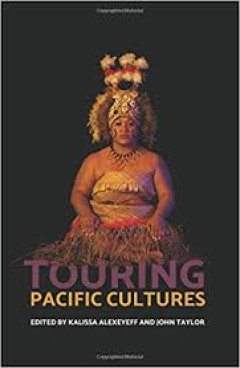
Touring Pacific cultures
edited by Kalissa Alexeyeff and John Taylor.
- Edisi
- -
- ISBN/ISSN
- 9781921862441
- Deskripsi Fisik
- xix, 457 pages : illustrations (some color) ; 24 cm
- Judul Seri
- -
- No. Panggil
- 155 ALE t
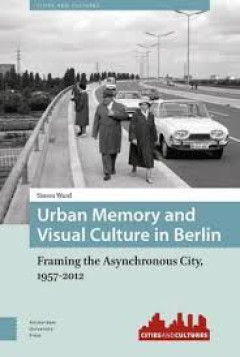
Urban memory and visual culture in Berlin:framing the asynchronous city, 1957…
As sites of turbulence and transformation, cities are machines for forgetting. And yet archiving and exhibiting the presence of the past remains a key cultural, political and economic activity in many urban environments. This book takes the example of Berlin over the past four decades to chart how the memory culture of the city has responded to the challenges and transformations thrown up by th…
- Edisi
- -
- ISBN/ISSN
- 9789089648532
- Deskripsi Fisik
- 212 pages : illustrations; 24 cm.
- Judul Seri
- -
- No. Panggil
- 153 WAR u
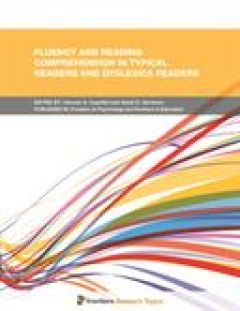
Fluency and reading comprehension in typical readers and dyslexics readers
Reading involves decoding and comprehension components and, to become efficient, it requires a large number of cognitive and linguistic processes. Among those, the phonological awareness, the alphabetic principle, the decoding, the fluency, the lexical development and the text comprehension development. The reading comprehension is strongly related with the development of vocabulary, oral langu…
- Edisi
- -
- ISBN/ISSN
- 9782889454150
- Deskripsi Fisik
- 175 p.; 22 cm.
- Judul Seri
- -
- No. Panggil
- 155 CAP f

Aesthetics and subjectivity:from Kant to Nietzsche
This new, completely revised and re-written edition of aesthetics and subjectivity brings up to date the original book's account of the path of German philosophy from Kant, via Fichte and Holderlin, the early Romantis, Schelling, Hegel, Schleimacher, to Nietzsche, in view of recent historical research and contemporary arguments in philosophy and theory in the humanities. The original book helpe…
- Edisi
- -
- ISBN/ISSN
- 9780719024450
- Deskripsi Fisik
- vii, 342 p.; 22 cm.
- Judul Seri
- -
- No. Panggil
- 155.01 BOW a

Architects of Buddhist leisure
Buddhism, often described as an austere religion that condemns desire, promotes denial, and idealizes the contemplative life, actually has a thriving leisure culture in Asia. Justin McDaniel looks at the growth of Asia’s culture of Buddhist leisure through a study of architects responsible for monuments, museums, amusement parks, and other sites. In conversation with noted theorists of materi…
- Edisi
- -
- ISBN/ISSN
- 9780824865986
- Deskripsi Fisik
- xi, 215 p.; 22 cm.
- Judul Seri
- -
- No. Panggil
- 155.09 MCD a
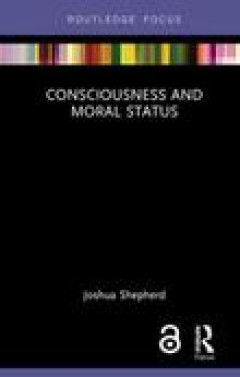
Consciousness and moral status
In this book Joshua Shepherd presents a systematic account of the value present within conscious experience. This account emphasizes not only the nature of consciousness, but also the importance of items within experience such as affect, valence, and the complex overall shape of particular valuable experiences. Shepherd also relates this account to difficult cases involving non-humans and h…
- Edisi
- -
- ISBN/ISSN
- 9781138221611
- Deskripsi Fisik
- 122 p.; 23 cm.
- Judul Seri
- -
- No. Panggil
- 155 SHE c
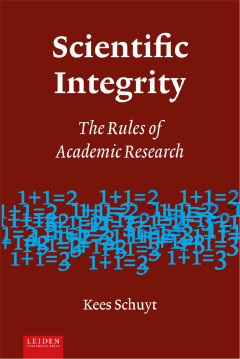
Scientific integrity :the rules of academic research
The growing attention for scientific integrity is part of a wider culture of professionalization and accountability − which appears to signal that integrity is no longer self-evident as a core value of professional conduct. Examples abound. But what is scientific integrity? Why does it matter? What are the issues, and what is at stake? What do we know about the nature and scope of violations …
- Edisi
- -
- ISBN/ISSN
- 9789400602182
- Deskripsi Fisik
- 182p. : ill.
- Judul Seri
- -
- No. Panggil
- 174.95072 SCH s
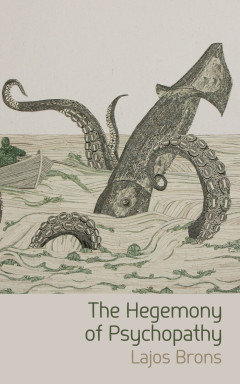
The Hegemony of psychopathy
Any social and political arrangement depends on acceptance. If a substantial part of a people does not accept the authority of its rulers, then those can only remain in power by means of force, and even that use of force needs to be accepted to be effective. Gramsci called this acceptance of the socio-political status quo “hegemony.” Every stable state relies primarily on hegemony as a sour…
- Edisi
- -
- ISBN/ISSN
- 9781947447165
- Deskripsi Fisik
- 120 p.; 22 cm.
- Judul Seri
- -
- No. Panggil
- 157 BRO h
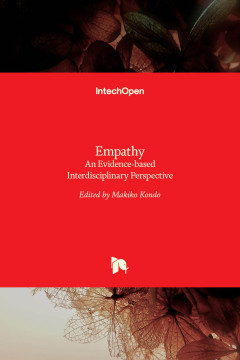
Empathy - an evidence-based interdisciplinary perspective
Empathy, a basic ability for understanding persons holistically, building supportive relationships, and listening attentively, includes being with suffering persons, healing, and inducing catharsis in them. Therefore, it is necessary within occupations supporting humans: education, clinical psychology, nursing, early childhood care, welfare, and medicine. Conversely, there are individual differ…
- Edisi
- -
- ISBN/ISSN
- 9789535134534
- Deskripsi Fisik
- 180 p.; 22 cm.
- Judul Seri
- -
- No. Panggil
- 155.4 EMP e

Time Distortions in mind
Time Distortions in Mind brings together current research on temporal processing in clinical populations to elucidate the interdependence between perturbations in timing and disturbances in the mind and brain. For the student, the scientist, and the stepping-stone for further research.
- Edisi
- -
- ISBN/ISSN
- 9789004230644
- Deskripsi Fisik
- 406 p.; 22 cm.
- Judul Seri
- -
- No. Panggil
- 153.753 TIM t

Crisis management - theory and practice
Crisis management is an interdisciplinary subject field represented by theoretical problems, practical activity, people management and the art of crisis situation solving. Overall, the studies that this publication contains are to provide an overview of the state of the art mainly focused on crisis management cycle represented by certain phases and steps. Topics include also lessons learned fro…
- Edisi
- -
- ISBN/ISSN
- 9781789232349
- Deskripsi Fisik
- 268 p.; 22 cm.
- Judul Seri
- -
- No. Panggil
- 144.2116 CRI c
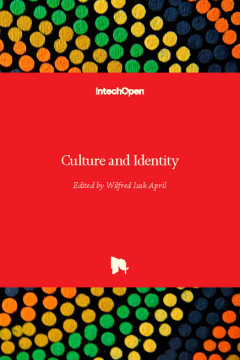
Culture and identity
This book is a wonderful celebration of culture and identity, especially from the cultural lens of the various authors' nation of origin. Culture is viewed as a collective programming of the mind and is at times compared to an onion?the more you peel off the layers, the more you get to learn about the values, beliefs, and norms of the respective societies. As complex as the onion diagram is, an…
- Edisi
- -
- ISBN/ISSN
- 9781838813154
- Deskripsi Fisik
- 122 p.; 23 cm.
- Judul Seri
- -
- No. Panggil
- 144.2116 CUL c

Digital humanities and digital media:conversations on politics, culture, aest…
There is no doubt that we live in exciting times: Ours is the age of many ‘silent revolutions’ triggered by startups and research labs of big IT companies; revolutions that quietly and profoundly alter the world we live in. Another ten or five years, and self-tracking will be as normal and inevitable as having a Facebook account or a mobile phone. Our bodies, hooked to wearable devices sitt…
- Edisi
- -
- ISBN/ISSN
- 9781785420306
- Deskripsi Fisik
- -
- Judul Seri
- -
- No. Panggil
- 144.2116 SIM d

Religious experience in the Hindu tradition
This Special Issue of Religions brings together a talented group of international scholars who have studied and written on the Hindu tradition. The topic of religious experience is much debated in the field of Religious Studies, and here, we present studies of the Hindu religious experience explored from a variety of regions and perspectives. Our intention is to show that the religious experien…
- Edisi
- -
- ISBN/ISSN
- 9783039210503
- Deskripsi Fisik
- -
- Judul Seri
- -
- No. Panggil
- 181.4 REL r
 Karya Umum
Karya Umum  Filsafat
Filsafat  Agama
Agama  Ilmu-ilmu Sosial
Ilmu-ilmu Sosial  Bahasa
Bahasa  Ilmu-ilmu Murni
Ilmu-ilmu Murni  Ilmu-ilmu Terapan
Ilmu-ilmu Terapan  Kesenian, Hiburan, dan Olahraga
Kesenian, Hiburan, dan Olahraga  Kesusastraan
Kesusastraan  Geografi dan Sejarah
Geografi dan Sejarah